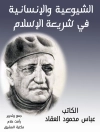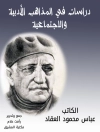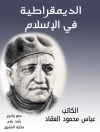Jewish Religion after Theology ponders one of the most intriguing shifts in modern Jewish thought: from a metaphysical and theological standpoint toward a new manner of philosophizing based primarily on practice. Different chapters study this great shift and its various manifestations. The central figure of this new examination is Isaiah Leibowitz, whose thoughts encapsulate more than any other Jewish thinker this stance of religion without metaphysics. Sagi explores corresponding issues such as observance, the possibility of pluralism, the meaning of penance without messianic suppositions, and pragmatic coping with theodicy after the Holocaust, presenting the different possibilities within this great alteration in Jewish thought.
İçerik tablosu
Preface. Chapter One: Are Toleration and Pluralism Possible in Jewish Religion? Notes. Chapter Two: Yeshayahu Leibovitz: The Man against his Thought. Notes. Chapter Three: Leibowitz and Camus: Between Faith and the Absurd. Notes. Chapter Four: Jewish Religion without Theology. Notes. Chapter Five: The Critique of Theodicy: From Metaphysics to Praxis. Notes. Chapter Six: The Holocaust: A Theological or a Religious-Existentialist Problem? Notes. Chapter Seven: Tikkun Olam: Between Utopian Idea and Socio-Historical Process. Notes. Bibliography. Index.
Yazar hakkında
Avi Sagi (Ph.D. Bar-Ilan University, 1988) is a Professor at Bar-Ilan University and Senior Research Fellow, Shalom Hartman Institute, Jerusalem. His recent books include Circles of Jewish Identity (with Zvi Zohar), Tel Aviv, 2000; `Elu va Elu` A Study on the Meaning of Halakhic Discourse, Tel Aviv, 1996












